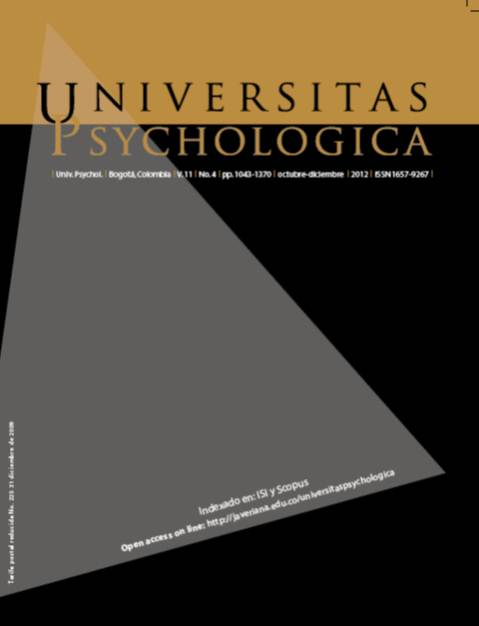Abstract
The aim of this article is to describe the Justice System for juveniles in the Province of Buenos Aires, Argentina, from a legal and administrative perspective; and to review recent contributions to the assessment of youth with dissocial behaviors. During the last 15 years, the system has been deeply modified in order to fit the recommendations of the Convention on the Rights of the Child’s. At present, the dispositions of the Courts are carried out by the Sub - Secretariat of Childhood and Youngsters of the Ministry of Social Development. This Secretariat has different facilities, such as closed, mixed centers that combine indoors and outdoors detention centers, open centers (in charge of the application of the sentences that bear alternatives to prison dispositions and community enforced services, etc). Studies from mental health and behavioral sciences have contributed to the identification of risk factors for dissocial behavior and for developing adequate interventions for each specific level of prevention. However, there is still a big gap between the state of the art and the practical issues related to it. Thus, the local system can be considered to be in transition period, and in need of adjustments not only in the legal codes but also in the application of the law, if policy improvement and better use of scientific knowledge is intended.
This journal is registered under a Creative Commons Attribution 4.0 International Public License. Thus, this work may be reproduced, distributed, and publicly shared in digital format, as long as the names of the authors and Pontificia Universidad Javeriana are acknowledged. Others are allowed to quote, adapt, transform, auto-archive, republish, and create based on this material, for any purpose (even commercial ones), provided the authorship is duly acknowledged, a link to the original work is provided, and it is specified if changes have been made. Pontificia Universidad Javeriana does not hold the rights of published works and the authors are solely responsible for the contents of their works; they keep the moral, intellectual, privacy, and publicity rights. Approving the intervention of the work (review, copy-editing, translation, layout) and the following outreach, are granted through an use license and not through an assignment of rights. This means the journal and Pontificia Universidad Javeriana cannot be held responsible for any ethical malpractice by the authors. As a consequence of the protection granted by the use license, the journal is not required to publish recantations or modify information already published, unless the errata stems from the editorial management process. Publishing contents in this journal does not generate royalties for contributors.


